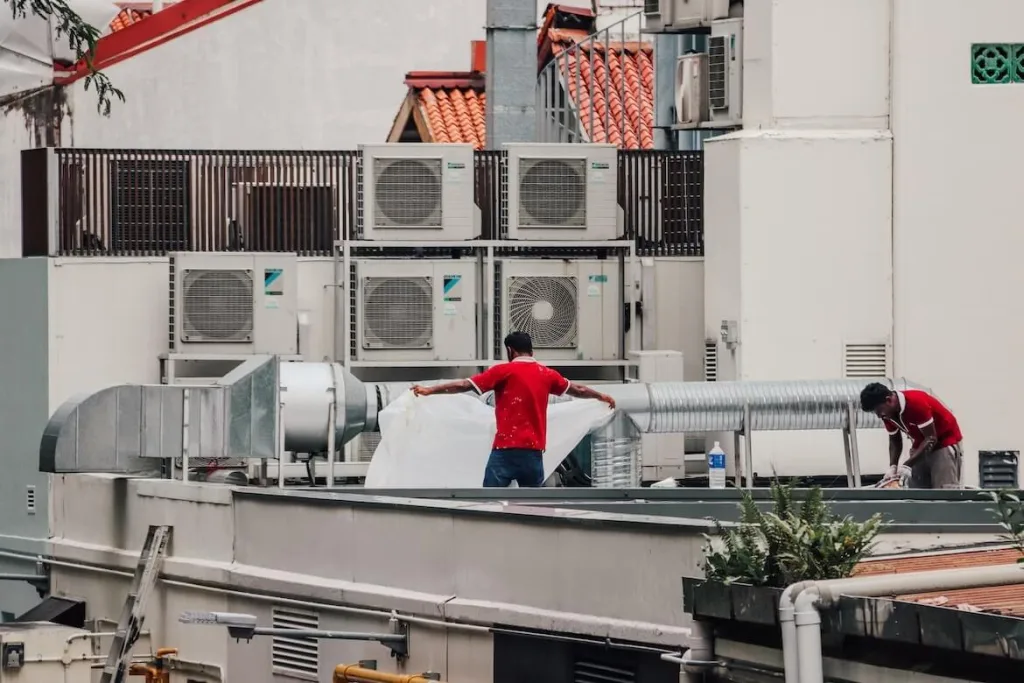Are you thinking about getting air conditioning installed in your home or business? It’s a great way to stay cool and comfortable during summer. But before you take the plunge, it’s important to understand the cost of air conditioning installation.
The process requires professional knowledge, specialized tools, and skilled labor – all of which increase the total installation cost. From assessing ductwork to evaluating electrical wiring, many factors influence the pricing for air conditioning installations. In this article, we’ll discuss some key considerations related to the overall expense associated with AC installations!
Definition of Air Conditioning Installation
Air conditioning installation is an essential process for a comfortable home. However, the cost of air conditioning installation varies based on the type of system and installation method used, as well as other factors that influence the cost. To understand what affects the AC installation process, it helps to know about some common types of air conditioning installations available.
A split-system air conditioner has two components: an indoor unit and an outdoor compressor. Split systems are usually installed alongside existing HVAC ductwork in residential or commercial buildings. Installing these units can be done by either a DIY homeowner or a professional HVAC technician, depending on the complexity of the job and local regulations.
Another option is a packaged unit, which contains heating and cooling elements in one package located outside your home. Packaged ACs require a less complex setup than split systems but may only be suitable for some homes due to their size and limited features compared to split systems. In addition, installation of this type, including the cost of air conditioning installation, requires more expertise than installing a split system, so it should typically be completed by professionals only.
Factors that Influence the Cost of Air Conditioning Installation
The first factor to consider that influence the cost of air conditioning installation is energy efficiency. The more efficient an AC unit is, the higher the initial investment in purchasing cost. However, this usually pays off over time as you save on utility bills due to lower energy consumption. Additionally, certain tax incentives might be available depending on your region and local government initiatives regarding energy-efficiency improvements.
The labor cost for installing an air conditioner includes any electrical wiring or modifications needed before installation. It also considers how long it takes for the HVAC technicians to complete the job according to industry standards and safety regulations. Contractors charge by the hour or flat rate, so get quotes from several companies for your project.
Important Considerations Before Installation
It’s essential to consider a few things before having air conditioning installed. Pre-installation considerations include energy efficiency, airflow direction, and climate control.
When it comes to energy efficiency, you’ll want to make sure the system is well-insulated. This will help reduce your bills since you won’t waste any cool air the AC unit produces. You should also look into how much electricity is used when running the AC since this could impact your monthly electric bill.
Airflow direction is another essential factor to consider when installing an AC unit. How air flows through the room directly correlates with its temperature; if not properly managed, rooms can quickly become too hot or cold. Also, proper airflow helps ensure that all home areas are cooled evenly for maximum comfort.
Climate control should also be considered when planning an installation project. Depending on where you live, certain cooling systems may be better suited to provide optimal climate control throughout your home during different times of the year. It’s best to consult with a professional HVAC technician who understands local weather conditions and can advise accordingly about what type of equipment would work best for your particular situation.
Benefits of Investing in Air Conditioning Installation
Installing a quality air conditioning system brings many benefits. There are climate control, energy efficiency, and comfort benefits that result from having an effective HVAC system in place. Additionally, there’s the cost savings benefit of avoiding costly repairs due to inadequate cooling or heating systems.
The other key benefit associated with air conditioning installation is improved energy efficiency. Modern systems use advanced technology to consume only a little energy while running efficiently. This helps homeowners save money on their utility bills by reducing overall costs for heating and cooling expenses throughout the year. Some newer models may even include smart thermostats, which provide extra convenience and further reduce energy consumption on top of existing performance levels.
Finally, investing in quality air conditioning also provides owners with greater comfort than older units or those that haven’t been properly maintained. A well-maintained unit will help ensure proper airflow into all home areas so everyone feels more comfortable, whether inside or out, enjoying outdoor activities this summer!

Maintenance and Repair Services
Regularly scheduled AC repairs and maintenance can extend the life of your system, improve its performance, and save you money on energy bills. The following are four key considerations when investing in aircon maintenance or ac repair:
- Check Filters – Checking filters regularly helps ensure they are clean and efficient. This will help reduce dust buildup within your AC system, which can cause a loss of efficiency over time.
- Inspect Coils – You should also inspect coils every year or two to ensure they aren’t clogged with dirt or debris. Clogged coils can lead to poor cooling performance and higher energy costs.
- Check Refrigerant Levels – It’s vital to check refrigerant levels as well since low levels can affect how well your air conditioner performs. A qualified HVAC technician can check this for you during an annual inspection or whenever needed.
- Clean Condensate Drain Lines – Cleaning the condensate drain lines from time to time helps prevent water leaks, musty odors, mold growth, and other problems caused by clogs in these lines.
Maintaining a regular schedule for inspecting and cleaning components related to your conditioning installation is essential to maximize its lifespan and keep running costs down. Even if there appears to be no issue with the system itself, having a professional come out periodically will help identify underlying issues before they become more costly repairs later on.
Conclusion
When it comes to the cost of air conditioning installation, there are a few things you need to know before investing. You should research contractors in your area, including those specializing in air conditioning in Sarasota, to decide who is best for the job. It’s also important to consider factors like energy efficiency and performance when selecting the best system for your home or business.
At Tropic Air Conditioning, our experienced technicians offer maintenance and installation solutions, ensuring your system remains efficient and running smoothly. Contact us today.




